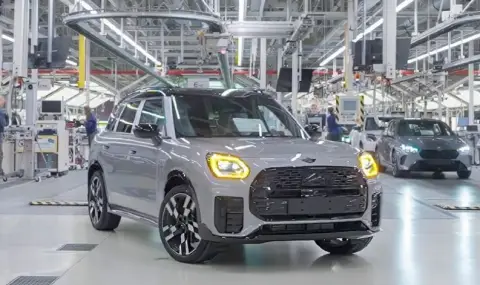A large part of the European Parliament members opposed the ban on cars with internal combustion engines in 2035. The European People's Party proposes to revise the adopted law based on the principle of technological neutrality. According to the EPP, MEPs should have the right to choose, and climate goals can be achieved by combining different solutions. They can be related to both synthetic fuel and expanding the production of plug-in hybrids.
The largest and oldest faction of the European Parliament, the European People's Party (EPP), published a memorandum in which it points out the need to revise the EC's climate strategy regarding the automotive industry. Today, the industry generates 7% of the EU's gross domestic product and employs 13.8 million people, so if everything collapses, it will be the biggest blow to the economy of the Old Continent. The fears of the deputies are not in vain, as there is a decline in the growth rate of sales of electric cars and the fall into crisis of some companies - for example, Volkswagen and Stellantis, is already a fact.
First of all, the EPP group proposes to repeal the notorious ban on the sale of new cars with internal combustion engines
According to the deputies, the document contradicts EU legislation, as it repeals the principle of technological neutrality, in other words, deprives consumers of the right to choose. After all, it is possible to reduce harmful emissions not only by massively switching to electric cars. There are also alternative types of fuel (synthetic, bio-, hydrogen) and plug-in hybrids, the role of which is being kept silent for some reason.
The memorandum of the EPP group also contains other initiatives. For example, the deputies call on the governments of the EC countries to actively finance developments in the field of AI, autonomous driving technologies and new types of fuels. Investment in infrastructure, the abolition of fines, synergies with other industries and the transition to a closed-loop economy are imperative because they will reduce the automotive industry's dependence on imported raw materials - mainly, of course, raw materials for batteries coming from China.
To stimulate the sale of environmentally friendly cars, EU Member States can introduce innovative support schemes such as purchase incentives, VAT reductions or subsidised leasing. Overall, the EPP group proposes a less strenuous path to climate neutrality. To what extent it meets the objectives of the European Parliament is difficult to say, but it should be borne in mind that not all countries generally supported the ban on the sale of cars with internal combustion engines, and now they have the strong support of the EPP.
